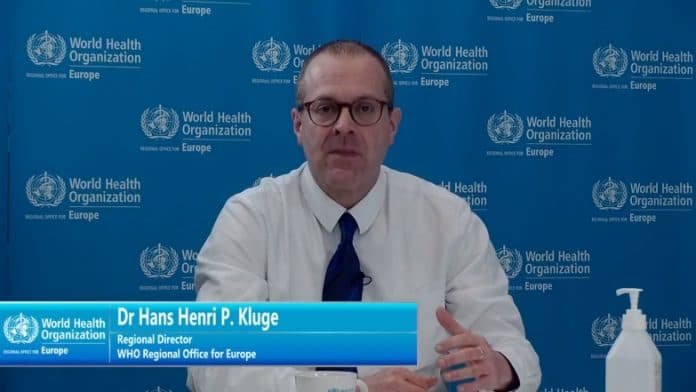With COVID-19 now in its third month in Europe, the World Health Organization said there were positive signs but that the situation remained very fragile amid a dramatic rise in domestic violence. The WHO urged local and national authorities to keep health and social services running to help protect the vulnerable.
“It is over 3 months since the novel coronavirus gained a foothold in our region, over 2 months since Europe first documented community transmission, and just over 1 month since we observed the virus move east across the European Region. With a total of 1.6 million cases and almost 150,000 deaths, the European Region accounts for 45% of cases and 60% of global deaths associated with COVID-19,’’ said Dr. Hans Kluge, the Regional Director for Europe for the World Health Organization.
Across Europe for almost four weeks, the WHO has reported a decrease in the number of cases reported per day.
“Slowly but surely, we are seeing positive signs,’’ Dr. Kluge said. However, he added that “the situation remains very fragile and could quickly relapse if the basic measures are not scaled up, their surge maintained and if the transition is not planned carefully and gradually.”
As COVID-19 rampaged through Europe, countries across the region have reported a large increase in domestic violence.
“Although data is scarce, Member States are reporting up to a 60 percent increase in emergency calls by women subjected to violence by their intimate partners in April this year, compared to last. Online enquires to violence prevent support hotlines have increased up to five times,” Dr. Kluge said.
The WHO is deeply troubled by reports from many countries, including Belgium, France, Ireland, the Russian Federation, Spain, the United Kingdom, and others of increases in interpersonal violence — including violence against women and men, by an intimate partner, and against children, because of the COVID-19 response.
Dr. Kluge said that UNFPA has warned that there could be an extra 31 million cases of gender-based violence if lockdowns were to continue for six months.
He urged, national and local governments to continue to offer social services, expand hotlines and other services to help people who experience violence.
“Violence is not a private matter,” Dr. Kluge said. “If you see something, say something.’’
He also recommended taking steps for prevention. “Violence is preventable not inevitable.’’
Additional links:

